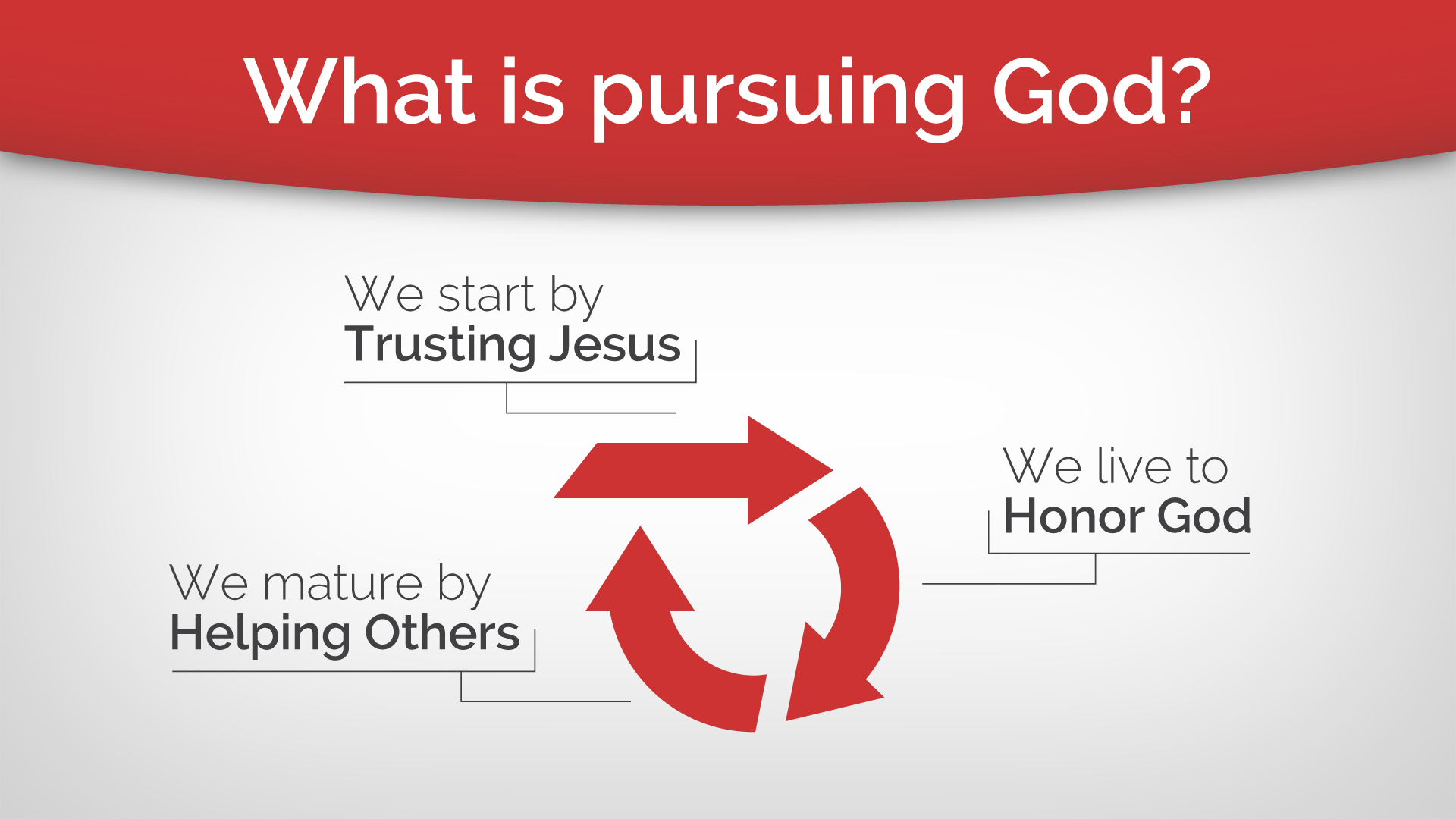Jesus had a certain thing in mind when he called his disciples to follow him. A careful reading of the Bible will make it obvious that a biblical Christian does three things: trusts Jesus, honors God, and helps (disciples) others. Here’s the picture:

But most spiritual seekers today stop well short of the picture Jesus had in mind for his followers. Those people fall into three basic camps, listed below. Identify where you land in the picture, and then connect with a group or mentor to take the prescribed action step.
[Related Series: Foundations]
The “Truth-Seeker”
The “truth seeker” goes to church and may even identify as a Christian. Many truth seekers grew up in a Christian home – though some are new to church altogether. Some truth-seekers might even appear to go “full circle” – trying to live lives that honor God and working hard to help other people in society. But there’s a simple problem: they haven’t yet trusted Jesus for salvation.
Romans 10:9 If you confess with your mouth that Jesus is Lord and believe in your heart that God raised him from the dead, you will be saved.
According to the Bible, going to church doesn’t make you a Christian. And neither does living an honorable life. “We start a relationship with God by trusting Jesus.” So if you haven’t personally put your faith in Jesus – trusting his power to save you and his perspective to lead you – then you haven’t technically started. You can’t take the second and third step if you haven’t taken the first step.
Action Step: Talk with a group or mentor about getting to your “faith moment”.
The “Carnal Christian”
Churches across America are filled with these “carnal Christians” – those who have gotten to Step 1 but no further. Maybe they prayed the prayer at a retreat or during an altar call. They’ve probably even been baptized. But that’s as far as it goes. Their faith is a purely theoretical thing, rarely intersecting with everyday life. They struggle regularly with sin. If their version of Christianity went to trial, there wouldn’t be enough evidence to convict.
James 2:18 Now someone may argue, “Some people have faith; others have good deeds.” But I say, “How can you show me your faith if you don’t have good deeds? I will show you my faith by my good deeds.”
Jesus never intended for us to use his unbounded grace as a license to sin. The attitude of repentance (present at our faith moment) should result in the actual fruit of repentance in our daily actions and habits.
Action Step: Talk with a group or mentor about habits and a Spirit-empowered life.
The “Consumer Christian”
There’s one more type of Christian out there who falls short of what Jesus envisions for his followers. The “consumer Christian” loves Jesus, attends church regularly, and even participates in Bible studies. This Christ-follower consumes sermons, books, devotionals, worship music, and more. This person lives a God-honoring life, obeying all but one important command:
Matthew 28:19 Therefore, go and make disciples of all the nations, baptizing them in the name of the Father and the Son and the Holy Spirit.
Full circle followers of Jesus are called to help others pursue God. But making disciples (we call it “mentoring”) can be intimidating for even the most seasoned Christians. As a result, most Christians never do it, leaving the task instead to pastors and other “professionals”. But Jesus calls all of us to be producers of disciples, not just consumers of discipleship material.
Wherever you stand in your pursuit of God today, keep moving forward until you become the disciple that Jesus envisioned.


